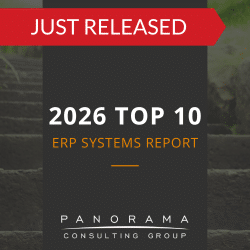I had the pleasure of speaking at the Financial Management Institute’s PD Week 2013, “Transformation Through Innovation,” which was an appropriate theme for Canada as financial managers across all levels of government in Canada are embarking on a journey to implement the largest agency-wide ERP system in history.
I admire the leaders behind this initiative because they are looking at their overall initiative as a government transformation initiative and rethinking what they do and how they do it in order to innovate. Their key mission is to drive government to become efficient, act more like an enterprise by reducing costs, and achieve “value-for-money” from financial management. These leaders in the Office of the Comptroller General are truly thinking about new ways of doing business that yield the best results for Canadians.
Another example of innovation is an e-Government solution like the ‘Smart City’ initiative in Cape Town, South Africa, which have allowed municipalities to efficiently manage resources, streamline tax collection and help create a citizen-focused environment. Smart City uses a dual approach – an ‘external’ dimension vastly enhances the ability of citizens to access and harness ICT for self-development, while internal initiatives involve standardization of IT services and related ICT capacity building within the city administration.
In Kenya, an e-Government service in six towns includes an Internet-based tool that allows citizens to anonymously report instances of corruption. The service is part of the country’s Electronic Graft Management (EGM) project. A survey conducted in two municipalities as part of the project showed the following:
- 80% of respondents felt that computerization had improved financial transparency.
- 82% of respondents felt municipal financial management had become more effective.
- 80% of respondents felt e-Government services improved accountability, as they could now track business permit licenses and monitor all payments handled by city councilors.
Chile is another country with big innovation ambitions; the Chilean government declared 2013 to be its year of innovation under the headline, “Imagina Chile” (imagine Chile). The Economist named Santiago the “Chilecon Valley” (the Silicon Valley of Latin America), much thanks to programs like “Startup Chile,” the friendly entrepreneurial ecosystem established by the Chilean government to promote private sector participation and help government innovate.
Finally, Peru announces their “modernization project” which aims to modernize the country’s infrastructure and government management through the deployment of technology.
More and more, we are seeing governments in both developed and developing countries evolve and strive to act like an enterprise in order to be efficient and streamlined and provide citizen-focused services. If you happen to be an agency or government that refuses to change or evolve with the public demand, chances are that the citizens will demand better service and force you to change and innovate like the rest of the world.
Return on citizenship (ROC) is about evolving, innovating and providing services to citizens. The demand for innovative consultants to partner with innovative leaders is becoming much more important to society. The need for government to allow and open the doors to innovation is crucial to the growth of every society and economy.
The transformation of government, its business processes and its management processes will be enabled through the proper deployment of enterprise-wide systems that strive to provide e-Government for the internal and external interaction with its citizens and employees. Innovation does not come easy. Changes in the system and the soul of the agency need to happen first but as illustrated, the evolution and revolution is already happening and change is imminent.
Panorama Government Solutions’ mission statement: Become the global leader in innovative management and technology in the public sector by enabling government to better serve its citizens.













